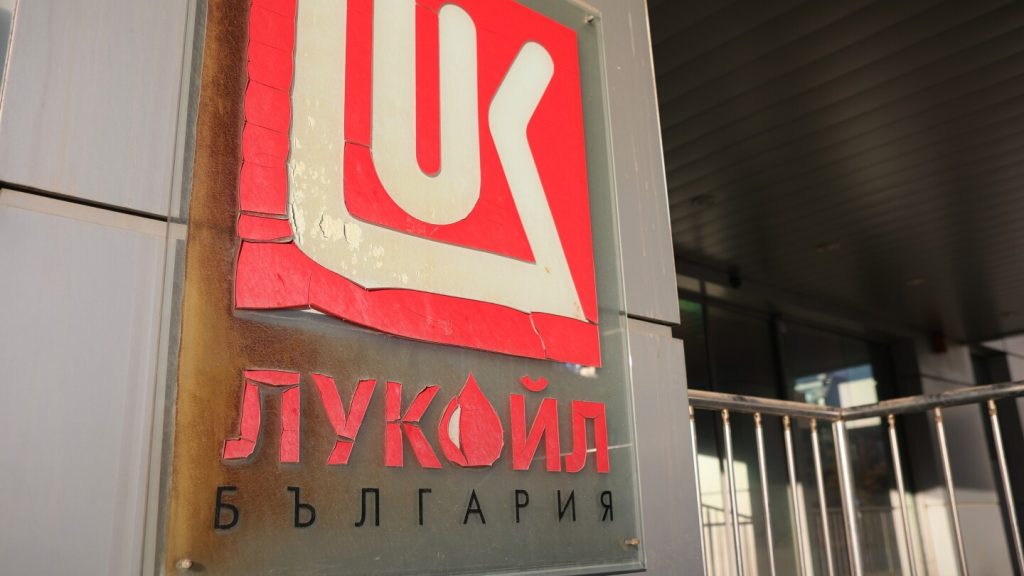Listen to the article
International commodities trader Gunvor has abandoned its planned acquisition of Russian oil giant Lukoil’s international assets following accusations from the U.S. Treasury Department that it was acting as “the Kremlin’s puppet.”
The Geneva-based trading firm announced its withdrawal on social media platform X, just days after Lukoil had confirmed the preliminary agreement. The Russian company had stated that the deal was contingent on several conditions, including approval from the U.S. Treasury’s Office of Foreign Assets Control (OFAC).
The confrontation escalated Thursday when the U.S. Treasury Department posted a strongly-worded statement on X referencing the ongoing Russia-Ukraine conflict and the Trump administration’s position on the war.
“President Trump has been clear that the war must end immediately,” the Treasury Department stated. “As long as Putin continues the senseless killings, the Kremlin’s puppet, Gunvor, will never get a license to operate and profit.”
Gunvor swiftly rejected the characterization, calling the Treasury’s statement “fundamentally misinformed and false.” The company defended its reputation, stating it “has for more than a decade actively distanced itself from Russia, stopped trading in line with sanctions, sold off Russian assets, and publicly condemned the war in Ukraine.”
The trading firm added that while it welcomed the opportunity to correct what it called a “clear misunderstanding,” it was withdrawing its proposal for Lukoil’s international assets.
Gunvor’s ownership history has been a source of scrutiny in international commodities markets. Founded by Swedish oil magnate Torbjörn Törnqvist and Russian oligarch Gennady Timchenko, the company is formally headquartered in Nicosia, Cyprus, while maintaining its main trading operations in Geneva, Switzerland.
The company has emphasized that Timchenko, who has close ties to Russian President Vladimir Putin, divested his stake in the company in March 2014. According to Gunvor, Timchenko sold his shares to Törnqvist in anticipation of “potential economic sanctions” as Russia moved to annex Crimea from Ukraine.
Lukoil, Russia’s second-largest oil producer, had been looking to divest its international holdings in response to mounting U.S. sanctions aimed at pressuring Russia toward a ceasefire in Ukraine. The company maintains significant global operations, including stakes in oil and gas projects across 11 countries, refineries in Bulgaria and Romania, a 45% stake in a Dutch refinery, and numerous gas stations throughout Europe and beyond.
This failed acquisition represents another example of how Western sanctions continue to reshape global energy markets and complicate Russian companies’ attempts to maintain international operations. The incident also highlights the challenges facing multinational companies with historical ties to Russia as they navigate increasingly complex geopolitical tensions.
Energy analysts note that Russian oil companies face growing isolation in global markets, with traditional partners increasingly hesitant to engage in major transactions due to sanctions risk and political pressure. This development could accelerate the redrawing of global energy supply chains that has been underway since Russia’s invasion of Ukraine in February 2022.
For Gunvor, the public confrontation with the U.S. Treasury represents a significant reputational challenge, despite its assertions of having distanced itself from Russian interests. The company, which ranks among the world’s largest independent energy traders, will likely face increased scrutiny of its operations and ownership structure in the coming months.
Fact Checker
Verify the accuracy of this article using The Disinformation Commission analysis and real-time sources.




10 Comments
This seems like a sensible decision by Gunvor. Avoiding any association with the Kremlin is crucial for maintaining access to global markets and financial systems. The reputational damage could have been severe if they had proceeded with the Lukoil deal.
It’s understandable that Gunvor would want to distance itself from any Russian assets given the current political climate. The risk of getting blacklisted or facing other sanctions is simply too high to ignore.
The US Treasury’s strong language against Gunvor is a clear sign of the political pressure being applied to companies with Russian ties. It will be interesting to see if other commodity traders face similar scrutiny as the Ukraine conflict continues.
Agreed. The geopolitical risks are significant, and prudent firms will likely err on the side of caution when dealing with Russian assets or counterparties.
This is an interesting development. It seems Gunvor wisely decided to drop the Lukoil deal rather than get entangled in the US-Russia tensions over the Ukraine war. Maintaining a neutral stance may be prudent for commodity traders in these geopolitically charged times.
You make a good point. Avoiding any perception of being a ‘Kremlin puppet’ is probably the safest move for Gunvor right now, even if the US allegations may be exaggerated.
The US Treasury’s harsh rhetoric against Gunvor is a clear warning shot to other commodity traders with Russian ties. It will be interesting to see if this sets a precedent for increased scrutiny of the industry’s dealings with Russia.
Absolutely. Commodity firms will need to carefully review their Russian exposures and be prepared to make tough decisions to protect their global business interests.
The US Treasury’s tough stance on Gunvor highlights the challenges facing commodity traders who have to navigate the shifting geopolitical landscape. Maintaining a neutral position is increasingly difficult as the Ukraine war drags on.
That’s a fair point. Commodity traders like Gunvor will need to tread very carefully to avoid being caught in the crossfire of the US-Russia tensions.